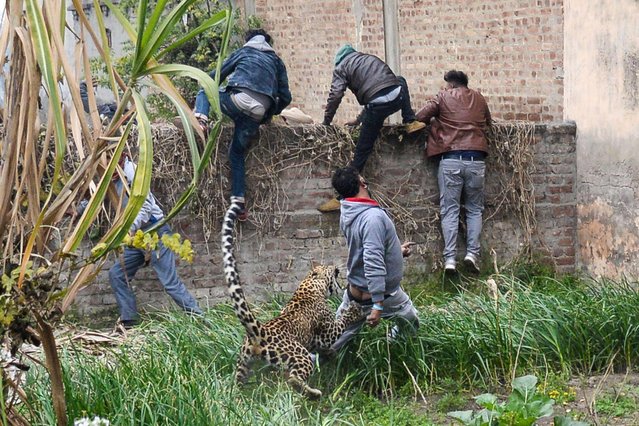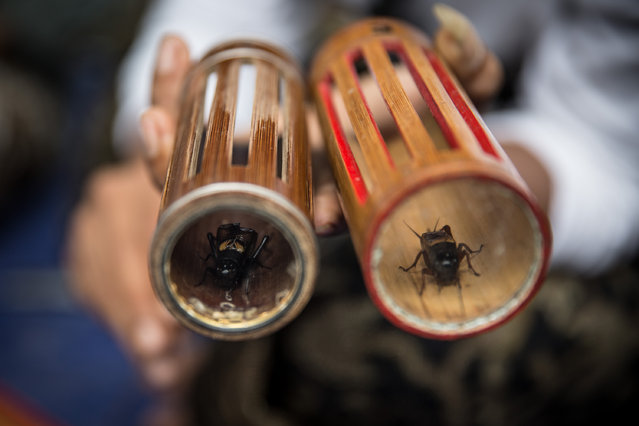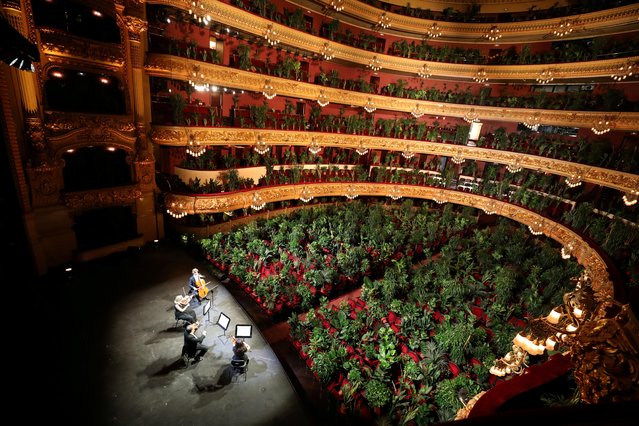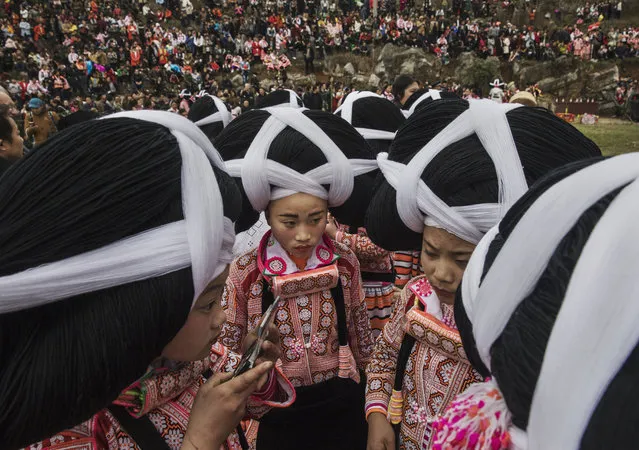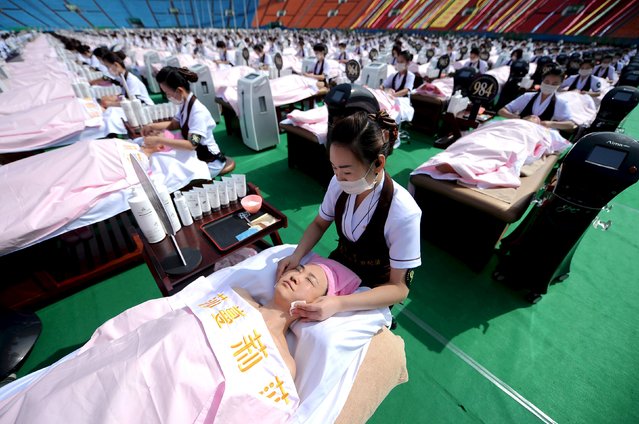
A group of 1000 customers receive a facial massage at a sports centre in Jinan, Shandong province, China, May 4, 2015. A group of 1000 women were given a 30 minutes facial beauty treatment together on Monday that achieved a Guinness record for the largest group of people having beauty treatment in the same location, according to local media. (Photo by Reuters/Stringer)
06 May 2015 13:17:00,post received
0 comments

